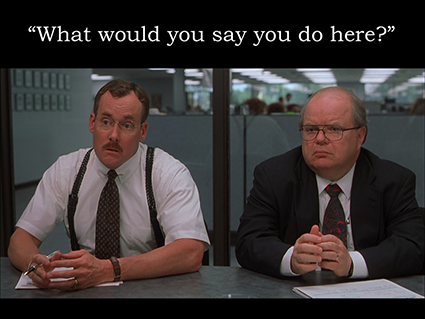May
27What Do Managers Actually Do?
“No job is more vital to our society than that of the manager. It is the manager who determines whether our social institutions serve us well or whether they squander our talents and resources.” – Henry Mintzberg
According to traditional management theorists (Henri Fayol and others), managers plan, organise, execute, coordinate and control. In truth, the pressures of reacting to urgent matters supplant most reflection and planning.
Managers end up responding to daily crises, take on too much work, operate with continuous interruptions and make instant decisions. They have no time to step back and consider bigger issues—a problem that often causes them to act with incomplete, fragmented information.
In a classic November 2003 Harvard Business Review article, “Manager’s Job: Folklore and Fact,” Mintzberg outlines 10 daily management roles that fall within three broad categories:
Interpersonal Category (3 Roles)
1. Figurehead
You represent your group to your organization and the community at large.
2. Leader
You hire, train and motivate employees.
3. Liaison
You maintain contact with colleagues and stakeholders outside your immediate chain
of command.
Informational Category (3 Roles)
4. Monitor
You leverage your personal network to scan the environment for vital information.
5. Disseminator
You feed information to subordinates who lack your access to critical data.
6. Spokesperson
You provide information on behalf of your unit to senior management and
outside organizations.
Decisional Category (4 Roles)
7. Entrepreneur
You initiate projects to improve your unit’s processes or profits.
8. Disturbance Handler
You manage crises precipitated by employees, customers, suppliers, systems
or accidents.
9. Resource Allocator
You decide who will get what, coordinate the impact of interrelated decisions and
allocate managerial time.
10. Negotiator
You use strategic information to resolve grievances, establish contracts and
promote shared decisions.
If you want to improve the impact you are having examine your managerial skills, take an inventory of what actually happens each day:
- How do you spend your time?
- In which activities are you engaged?
- Are you really operating in all 10 pivotal roles?
- Where do you need help?
If you take a week – or even a couple of days – to log every activity you engage in as a manager, you’ll be amazed at what you’ll find. Then take note of which activities are getting shorted and need some attention. What needs to change or be altered?
Source – Diana Gabriel
